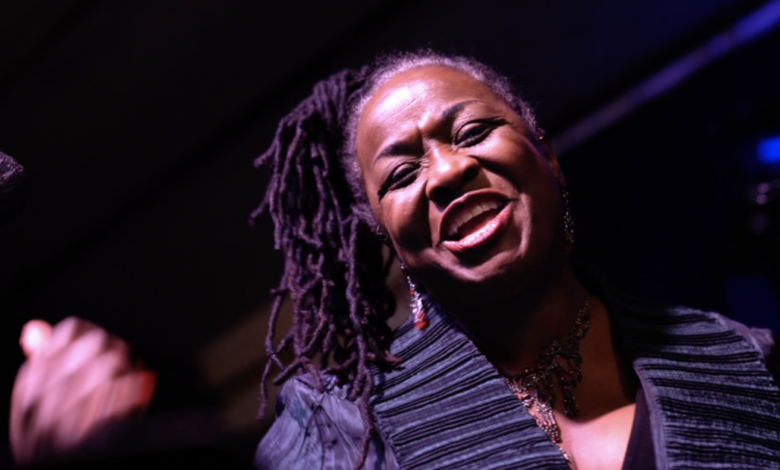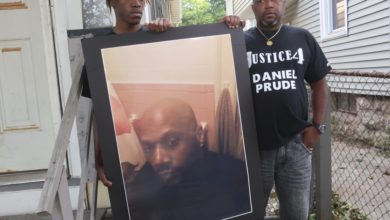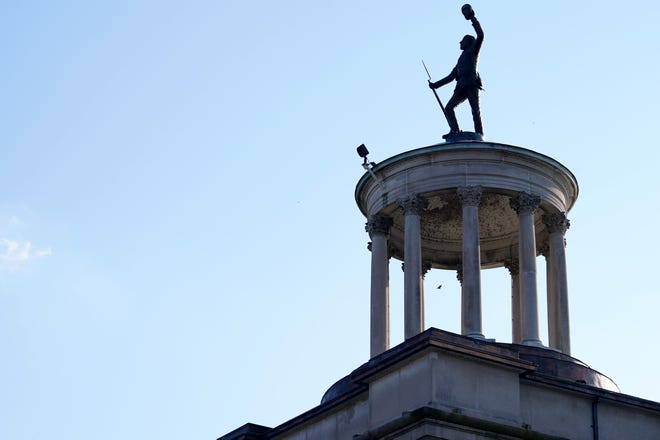
DENVER, Colo — Preserving jazz history is preserving Black history.
"I'm sitting here at Dazzle, which is the premier jazz club in the entire Rocky Mountain region,” said Purnell Steen, a pianist and jazz expert.
Steen comes from a long line of musicians.
“My cousin has been deemed to be the greatest living singer. I'm speaking of five-time Grammy Award winner Dianne Reeves," Steen said. "And my cousin, Charles Burrell, who is 101 years old, by the way, is also the last living musician who played for Billie Holiday.”
Steen says jazz grew because of the African American diaspora from the south.
“Jazz came out of the African American church when the various nations of Africans came to this hemisphere," Steen said. "Many of them came from disparate countries and spoke different languages. The only commonality, the only nexus they had was through the melodies, and these melodies became the roots of what became known as the Negro spirituals. So like 'Wade in the water, wade in the water, children', that's an old Negro spiritual.”
He says the sacred music became the rudiments of early jazz. Between the 1920s and 1950s, the Five Points neighborhood in Denver became known as the jazz capital of the western U.S.
“He was always writing on something, actually writing on paper towels. He had his little dog with him and said ‘Oh, man, this is the best damn music I've heard. Oh play, keep playing’. I mean, his language was spicy, to say the least. And he said that this is the 'Harlem of the West'. It was Jack Kerouac, the author.”
Steen says he’s trying to preserve its history and the music even more so after seeing so many jazz clubs close down during the pandemic.
“It's been tough," said Matt Ruff, who is a part-owner and general manager of Dazzle. "You know, we've had a lot of jazz venues that have closed. The Jazz Standard in New York is one of the big ones. Locally, Live at Jacks and the Old Chapultepec both have shuttered their doors, all because of COVID. Music is food for the soul. I know that that's a very that's a cliché statement, but it's very true. And the arts in general are things that people use to get over difficult times and through difficult times."
He says Dazzle was able to keep its doors open thanks to a supportive community and virtual performances.
“Allowing musicians the ability to perform in front of an audience, at least in front of a virtual audience, and also to receive tips and get paid for things like that as well,” Ruff said.
Ruff hopes as the pandemic calms that more clubs open up again. However, Steen is concerned part of the decline of jazz has been due to musicians becoming esoteric.
“They want to be able to walk out and say, "It don't mean a thing if it ain't got that swing', you know, instead of listening to toots, bells, squeaks and stuff that actually I don't understand.”
That has made him even more determined to preserve the significance and cross-cultural lines that the music blends.
“The foundation of jazz is the Blues," Steen said. "So I want to keep this part of the African footprints and the legacy of music. I want to preserve it as much as possible.”
He says the founders of Jazz have put their stamp on places around the world. They just have to make sure the winds don’t blow it away.
“And you've got to do something," Steen said. "You've got to tap your foot, snap your fingers, bob your head, shake your body. And hopefully we can preserve that.”








